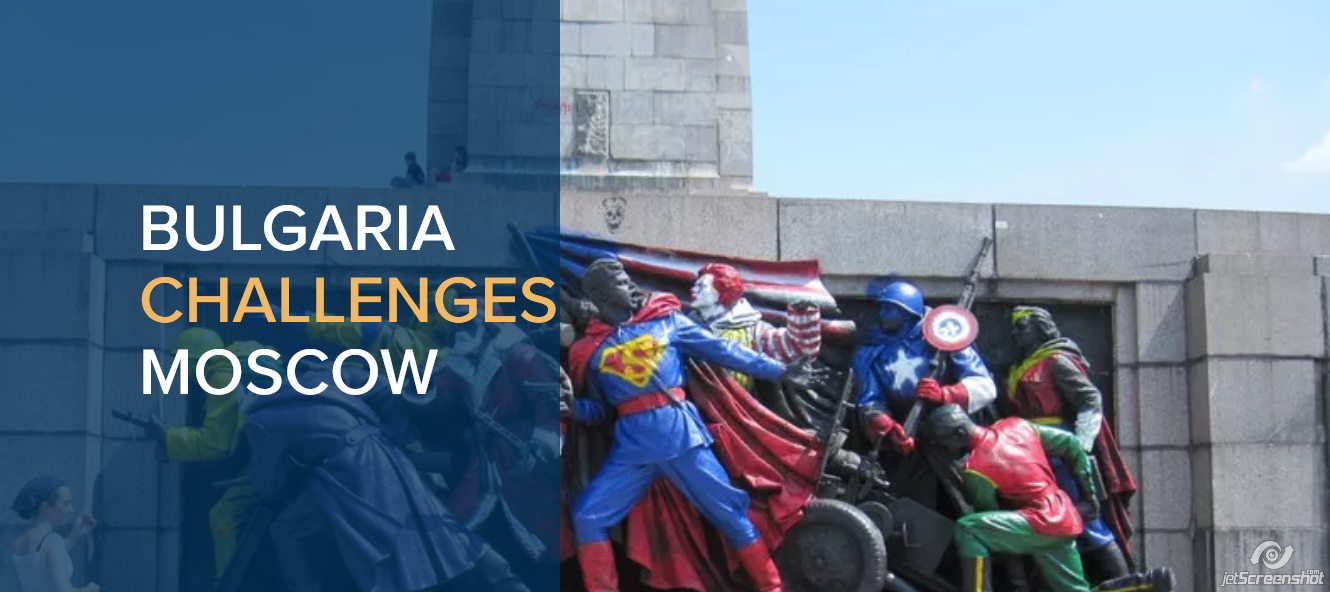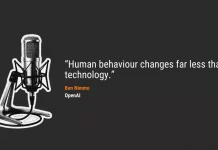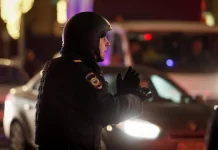
By Janusz Bugajsky, for CEPA
Despite Bulgaria’s NATO membership, Moscow has exploited its historically cordial ties with Sofia to undermine the country’s Western commitments. However, a struggle is now intensifying between traditional pro-Russia lobbies and Western-leaning activists who are reasserting Bulgarian identity. To fully affirm its distinctiveness, Bulgaria needs to reclaim its history, uphold its sovereignty, and thwart Moscow’s pernicious political influences.
Russian officials have traditionally depicted Bulgarians, similarly to Ukrainians and Belarusians, as “younger brothers.” In Russian parlance, this signifies a subservient family member who needs to follow the instructions of his older sibling. Indeed, Russia’s “fraternal relations” with all smaller neighbors have been anchored in this asymmetry in power and authority.
For many years, Bulgarian historians and educators have been battling to expose the myths and false narratives propagated by Russian historiography – for instance, that the Cyrillic alphabet was scripted by Russian not Bulgarian monks, or that Slavic Orthodox Christianity was Russian and not Bulgarian in origin. By appropriating the Bulgarian alphabet and Church traditions, Moscow portrays itself as the head of pan-Slavdom and Christian Orthodoxy. When Bulgaria was weaker than Russia during the Tsarist and Soviet eras, Sofia could do little to correct the historical record. However, under the NATO umbrella, Bulgaria possesses the security and confidence to rediscover its identity and reject the imposed Muscovite version of its history.
In recent historical distortions, the Russian embassy in Sofia opened an exhibition in September celebrating the alleged Red Army liberation of Bulgaria from Nazism. This sparked public outrage and the Bulgarian Foreign Ministry issued a strong statement pointing out that the Soviet Army brought half a century of repression, economic setback, and isolation from the European mainstream. The reaction in Moscow to Bulgarian assertiveness verged on the hysterical, with the “younger brother” accused of ingratitude for his liberation and “acting against the law.” In Russia, it is illegal to question the Red Army role either in collaborating with the Nazis or repressing the nations of Central-Eastern Europe.
Beginning this month, all history textbooks in Bulgaria include facts about the Soviet occupation of Bulgaria in 1944 and the criminal nature of the Soviet-backed Bulgarian communist regime. Bulgarian historians believe this is the real reason behind the strong reaction in Moscow to the Bulgarian Foreign Ministry statement. Moscow is also being pressed to return Bulgarian historical archives stolen by the Soviets and transferred to Moscow after World War Two. They contain details about communist terrorist acts perpetrated in Bulgaria under Moscow’s direction before World War Two.
Correcting Russia’s historical distortions has been accompanied by a reassertion of Bulgaria’s national sovereignty. In recent weeks, a pro-Kremlin politician has been arrested and tried for espionage and money laundering. Nikolai Malinov, a former parliamentary deputy from the Bulgarian Socialist Party (BSP) who heads a pro-Russian organization, is accused of accepting payments for transferring Bulgarian state secrets to two Russian organizations – the Double-Headed Eagle Society and the Russian Institute for Strategic Studies. Bulgaria’s President Rumen Radev criticized Malinov’s arrest, but presidential powers are limited and Radev is widely perceived as beholden to the Kremlin.
Bulgarian authorities also imposed a ten-year ban on entry into the country by Leonid Reshetnikov, a former Soviet and Russian intelligence agent and director of the Russian Institute for Strategic Studies, which develops strategies for Kremlin interference in foreign elections. Prosecutors in Sofia allege that Reshetnikov coordinated Russian espionage operations aimed at reorienting Bulgaria closer to Moscow. Sofia is also investigating Malinov’s ties to Russian media mogul Konstantin Malofeyev, who is banned from entering the EU and the United States for funding Russian proxy forces occupying parts of eastern Ukraine. Reshetnikov and Malofeyev allegedly financed numerous projects to increase Russian influence in the Bulgarian economy, culture, politics, and media.
If it continues to liberate itself from Moscow’s influences, Bulgaria will have an opportunity to strengthen NATO’s Eastern Flank, help secure the Black Sea region, and demonstrate its importance as an American ally. To disentangle itself from Russian dependence and pressure, the government needs to cut several tentacles that tether the country to Moscow. These include political corruption, energy dependence, and media penetration through which Russian officials depict Bulgaria either as a loyal Russian outpost or a traitor to Slavdom and Christian Orthodoxy.
As Russia becomes increasingly determined to project its military power over the Black Sea, Bulgaria will need to work more intensively with its NATO allies to check Kremlin ambitions. An important step would be accelerating the modernization of its armed forces and replacing Soviet with Western-produced equipment. In a sign of progress, Sofia plans to replace Soviet-designed Mikoyan MiG-29 fighter jets with Western aircraft, most likely U.S. F-16 Block 70 fighter jets. The Council of Ministers and parliament approved the acquisition of eight aircraft, and although President Radev vetoed the deal, parliament easily overturned his veto. Such moves indicate that Bulgaria has the leadership and capabilities to become a linchpin NATO ally on the Balkan peninsula and along the Black Sea littoral.
By Janusz Bugajsky, for CEPA
Europe’s Edge is an online journal covering crucial topics in the transatlantic policy debate. All opinions are those of the author and do not necessarily represent the position or views of the institutions they represent or the Center for European Policy Analysis.




